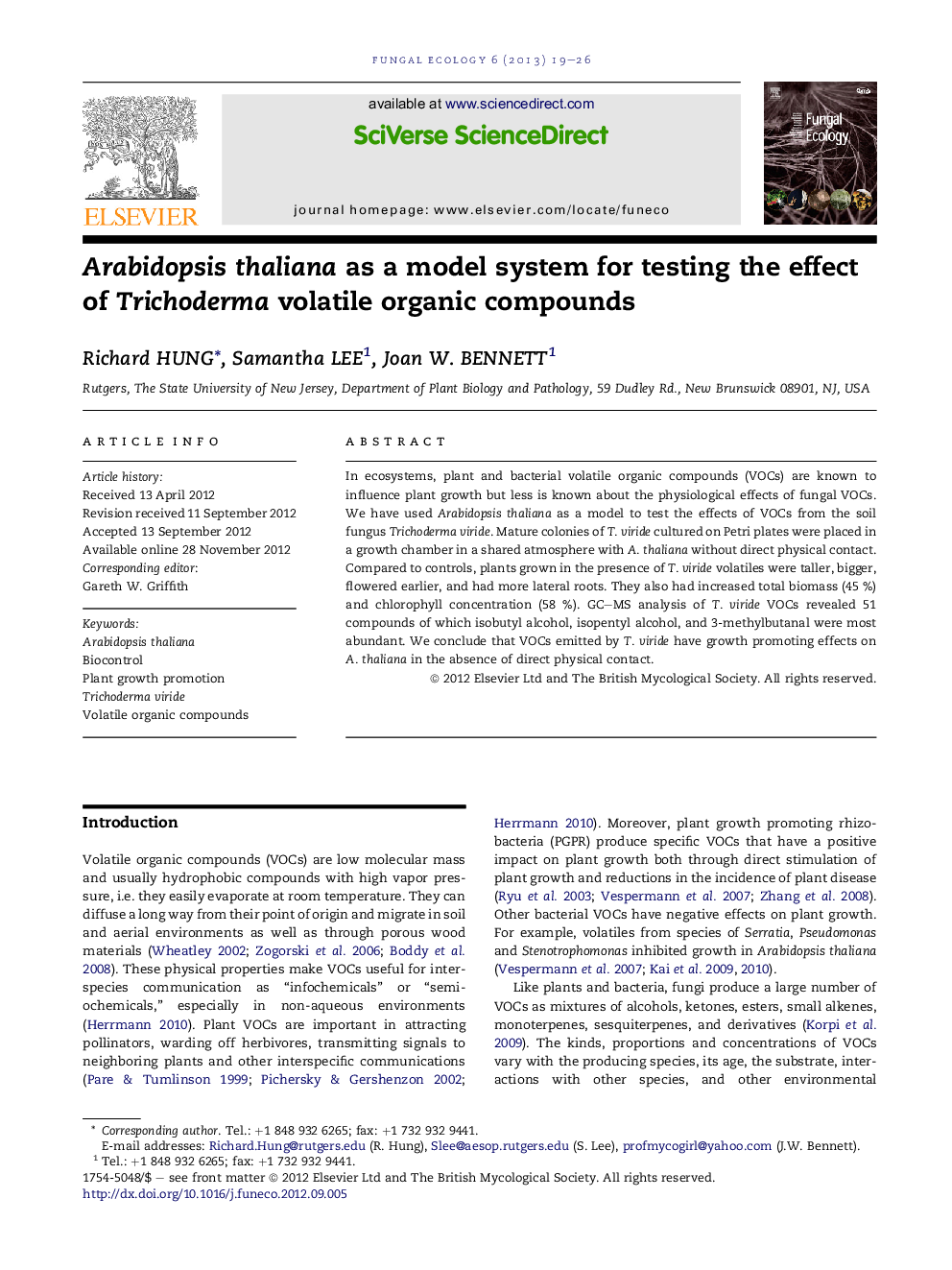| Article ID | Journal | Published Year | Pages | File Type |
|---|---|---|---|---|
| 2053973 | Fungal Ecology | 2013 | 8 Pages |
In ecosystems, plant and bacterial volatile organic compounds (VOCs) are known to influence plant growth but less is known about the physiological effects of fungal VOCs. We have used Arabidopsis thaliana as a model to test the effects of VOCs from the soil fungus Trichoderma viride. Mature colonies of T. viride cultured on Petri plates were placed in a growth chamber in a shared atmosphere with A. thaliana without direct physical contact. Compared to controls, plants grown in the presence of T. viride volatiles were taller, bigger, flowered earlier, and had more lateral roots. They also had increased total biomass (45 %) and chlorophyll concentration (58 %). GC–MS analysis of T. viride VOCs revealed 51 compounds of which isobutyl alcohol, isopentyl alcohol, and 3-methylbutanal were most abundant. We conclude that VOCs emitted by T. viride have growth promoting effects on A. thaliana in the absence of direct physical contact.
► Trichoderma spp. are known to have plant growth promoting properties, similar to PGPR. ► Fungi like Trichoderma spp. are known to produce large amounts and varieties of VOCs. ► The plant growth promoting potential of Trichoderma spp. VOCs should be studied with a plant model. ► Trichoderma viride volatiles elicit increased growth in Arabidopsis thaliana without direct physical contact.
